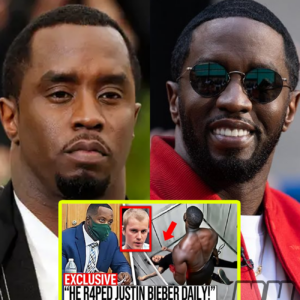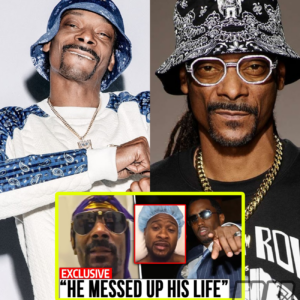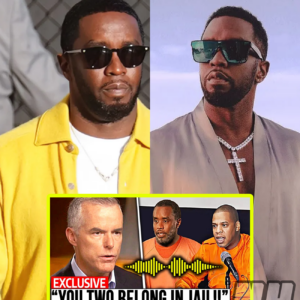The Tragic Tale of Nipsey Hussle and the Dark Side of the Music Industry
The untimely death of Nipsey Hussle, a beloved rapper and community activist, has left a profound impact on both the music industry and the neighborhoods he tirelessly worked to uplift. Nipsey’s story is a poignant reminder of the challenges and perils faced by those who seek to make a positive difference in their communities, especially within the volatile world of hip-hop.
A Legacy of Positivity and Empowerment
Nipsey Hussle, born Ermias Joseph Asghedom, was more than just a rapper. He was a beacon of hope and a symbol of resilience for many in his community. Growing up in the Crenshaw neighborhood of Los Angeles, Nipsey faced the harsh realities of gang violence and economic hardship. Despite these challenges, he rose to prominence not only for his music but also for his dedication to economic empowerment and community development. He invested in local businesses, created job opportunities, and was a staunch advocate for self-sufficiency and education within his neighborhood.
The Harsh Reality of Success in the Hood
In a heartfelt tribute, rapper Fat Joe expressed his sorrow over Nipsey’s death, emphasizing the tragic irony that often accompanies success in the hood. “It’s always the one that’s closest to us,” Fat Joe lamented, highlighting the unfortunate truth that those who strive to give back to their communities often face threats from within. Nipsey’s murder in front of his own store, The Marathon Clothing, underscores a grim pattern where envy and resentment from one’s own community can lead to devastating outcomes.
The Dark Side of the Music Industry
The music industry, particularly the hip-hop sector, is rife with stories of betrayal, manipulation, and exploitation. Fat Joe’s reflections on Nipsey Hussle’s life and death also touch upon broader issues within the industry. He pointed out the manipulative practices of industry moguls, such as Diddy, who have been accused of exploiting young artists. These allegations paint a picture of an industry where power dynamics are skewed, and success often comes at a significant personal cost.
Fat Joe’s comments on the manipulative nature of industry giants like Diddy highlight the systemic issues that plague the music business. Diddy has been accused of exploiting artists under his label, creating an environment where loyalty is overshadowed by financial gain and control. This exploitation often leaves artists in precarious positions, unable to thrive independently once they leave the protective but controlling umbrella of their label.
The Cost of Speaking Out
Artists who dare to speak out against these injustices often face severe repercussions. Mase, a former Bad Boy Records artist, publicly criticized Diddy for his exploitative practices, claiming that many artists under Diddy’s wing were left in dire financial situations despite their commercial success. Mase’s boldness in addressing these issues sheds light on the struggles faced by many artists who feel powerless against the influential figures who control their careers.
The Impact on Mental Health and Well-being
The pressures of the music industry, combined with the dangers of staying connected to one’s roots, can take a significant toll on an artist’s mental health. Nipsey Hussle’s tragic end serves as a stark reminder of the mental and emotional strain that comes with trying to balance success with community responsibility. The constant fear of violence, coupled with the manipulative tactics of industry moguls, creates an environment where artists are perpetually on edge, often leading to burnout, depression, and in some cases, tragic outcomes.
Conclusion: A Call for Change
Nipsey Hussle’s legacy is one of resilience, empowerment, and dedication to community upliftment. However, his death also calls attention to the urgent need for change within the music industry and the communities it influences. To honor Nipsey’s memory, it is crucial to address the systemic issues that endanger artists and undermine their efforts to give back. This involves creating safer environments for artists to thrive in their communities and ensuring fair and transparent practices within the industry.
Nipsey Hussle’s life and untimely death should serve as a catalyst for change, prompting both industry leaders and community members to foster an environment where artists can succeed without fear and exploitation. Only by addressing these deep-seated issues can we truly honor the legacy of Nipsey Hussle and others who have faced similar fates
News
(VIDEO) Celebs that P Diddy EXPLOITED for Cash
P Diddy and the Dark Side of the Entertainment Industry The entertainment industry is no stranger to scandal and controversy, but the recent revelations surrounding P Diddy (Sean Combs) have brought to light a web of disturbing allegations and connections…
(VIDEO) Kevin Hart IN TEARS After New Leaks EXPOSE Him At Diddy’s After Parties!!
Kevin Hart: A Complex Journey Through Fame, Scandal, and Personal Growth Kevin Hart, the renowned comedian and actor, has led a life marked by both incredible professional success and deeply personal scandals. His journey from selling sneakers to becoming one…
(VIDEO) “He Ruined My Life” Former Diddy Employees TEAM UP To EXPOSE Him!
The Dark Side of Fame: Allegations Against Diddy and the Revelations from Former Employees The music industry is often glamorized for its glitz and glamour, but behind the scenes, it can harbor dark secrets and troubling behavior. Recently, Sean “Diddy”…
(VIDEO) “He’s Why Justin Bieber Is DEPRESSED!” Undercover FBI Agent EXPOSES Diddy
The Tumultuous History of Snoop Dogg, P. Diddy, and the East Coast-West Coast Rivalry Hip-hop history is fraught with feuds, friendships, and ever-changing alliances. Central to many of these stories are iconic figures such as Snoop Dogg and P. Diddy…
(VIDEO) “Diddy Did Usher Dirty Forever” Snoop Dogg EXPOSES Sean Combs!
The Tumultuous History of Snoop Dogg, P. Diddy, and the East Coast-West Coast Rivalry Hip-hop history is fraught with feuds, friendships, and ever-changing alliances. Central to many of these stories are iconic figures such as Snoop Dogg and P. Diddy…
(VIDEO) Undercover CIA Agent EXPOSES Diddy & Jay Z!
The Fall of P. Diddy: A Dismantling of Credibility and the Unfolding Legal Crisis Introduction In recent years, Sean “P. Diddy” Combs has found himself at the epicenter of numerous controversies and legal battles that have significantly tarnished his once-polished…
End of content
No more pages to load











